Oct 10, 2018 Ian Harvey
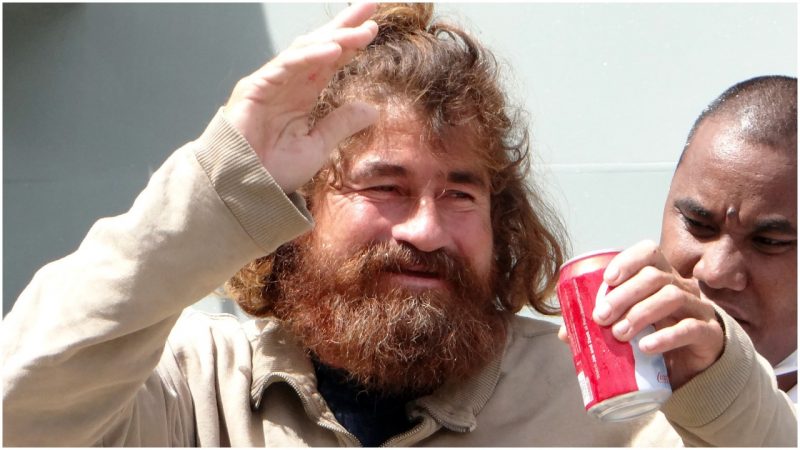
A man who had been lost at sea for 14 months was finally washed ashore, only to find himself faced with a whole new set of challenges.
NBC News reported that the world’s longest surviving castaway, José Salvador Alvarenga, survived his ordeal at sea, but one year later was facing a new battle. A $1 million lawsuit had been filed against Alvarenga — for eating his former crewmate.
Alvarenga and his companion, Ezequiel Córdoba, set out on November 17, 2012 on what was supposed to be a two-day trip, fishing off the coast of Mexico in a 25-foot boat.
In an article for the Guardian, Jonathan Franklin, author of 438 Days, the story of Alvarenga’s extraordinary survival, writes that he had packed up the boat with his usual crewmate, Ray Perez, but something came up and Perez couldn’t make the trip.
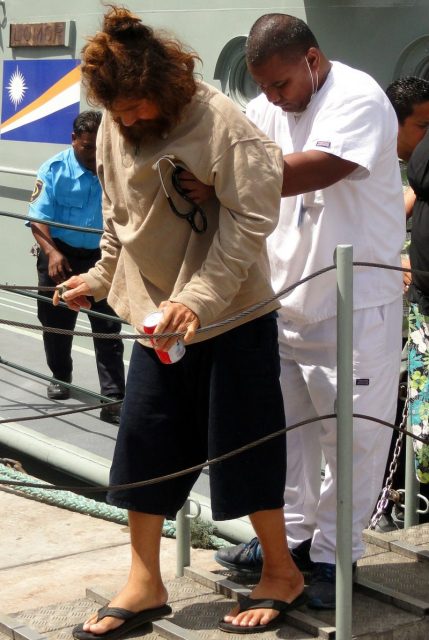
Salvadorean castaway who identified himself as Jose Ivan and later told that his full name is Jose Salvador Alvarenga. AFP PHOTO / Giff Johnson
Rather than forego the lucrative expedition, Córdoba was drafted in — an athletic young man with whom Alvarenga had never worked, but he was strong and keen. The pair brought in a good catch and were preparing to head for home when a sudden and violent storm rolled in, with 10-foot waves, destroying their radio and GPS, washing their supplies overboard, and blowing them out to sea.
Córdoba, an inexperienced 22-year-old, panicked, recalls Alvarenga. He suffered hallucinations and tried to throw himself into the shark-infested water.
The two men survived for several months by eating — raw — whatever fish and birds they could catch with their hands, and drinking turtle blood and rainwater, according to the Telegraph.
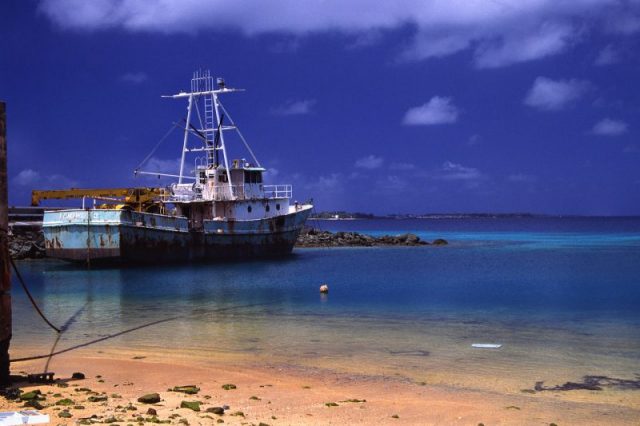
Majuro, The Marshall Islands. Photo by Stefan Lins CC BY 2.0
Several months into their ordeal, Córdoba became very ill. They soon discovered a poisonous sea snake in the belly of a bird they’d caught and started eating.
After that, he wouldn’t eat the raw meat that kept Alvarenga alive, eventually succumbing to starvation.
Before he died, Alvarenga agreed two things: not to eat his companion’s body after his death, and to find Córdoba’s family and tell them what had happened to him.
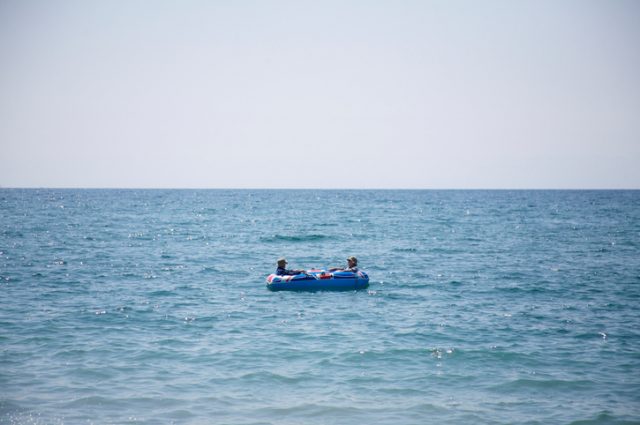
The Salvadoran fisherman survived 13 months adrift on the ocean.
On January 30, 2014, Alvarenga’s boat came ashore on a tiny islet at the southern tip of the Marshall Islands, some 5,500 miles from where the boat was when the storm hit. He was dehydrated, dishevelled, and confused. The islanders began nursing Alvarenga back to health, and NBC helped him to get in contact with family and let them know that he had survived.
After the rescue, Alvarenga related to authorities what had happened, including Córdoba’s death, saying that after the younger man had passed away, he had kept his body in the boat with him for six days because of the crushing loneliness of his plight before finally being forced to push him overboard.
After a couple of weeks, when he was feeling better, the survivor was flown to his hometown in El Salvador to return to his family, who had prepared a room for him. They hadn’t seen each other in over a decade since he left to earn his living hunting sharks.
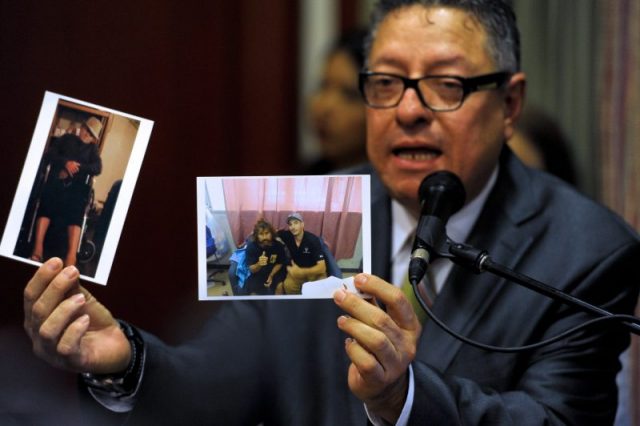
Carlos Guzman, representative of the Masonek Law Offices, attorney of Salvadorean castaway Jose Salvador Alvarenga, shows pictures of his client in the Marshalls islands, during a press conference in San Salvador. AFP PHOTO/ Jose CABEZAS. Photo by JOSE CABEZAS/AFP/Getty Images
A few weeks after that, he made the trip back to Mexico to talk to the Córdoba family and to tell them the story of what had happened to their son. He was accompanied by his attorney, Benedicto Perlera, whom he had known since he was a child. Alvarenga and Perlera had a huge argument on the journey, and Perlera now represents the Córdoba family.
Alvarenga signed a book deal, but chose to use a different lawyer in setting it up. Shortly after signing the deal, Perlera sued him for $1 million for breach of contract because he had replaced Perlera with another law firm, according to an NBC report.
The attorney also provided support for the Córdoba family’s claim that their son did not die the way Alvarenga described it. They suggested that Alvarenga had eaten his companion’s body rather than throwing it overboard, and this was the basis for a second $1 million legal action against the unfortunate Alvarenga. The family believe they should be entitled to a share of royalties made from the book.
Perlera said that he felt that he and Alvarenga could have been very successful together and that the story could be worth a great deal of money. However the Telegraph reports that Alvarenga’s new lawyer, Ricardo Cucalon, says the book has not made his client a rich man.
When Alvarenga was first discovered, there were those who had their doubts about his story. But various survival experts, oceanographers, and doctors supported the plausibility of Alvarenga’s description of how events unfolded, and Alvarenga took and passed a polygraph test several months after he returned to dry land.
